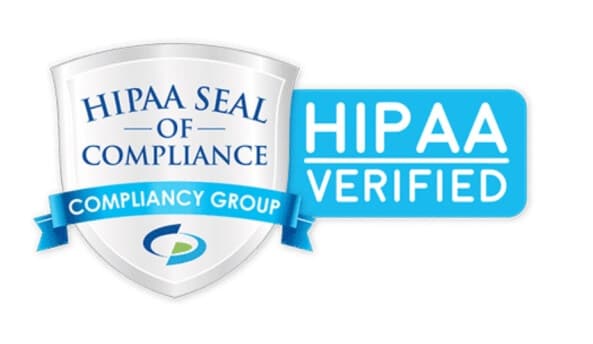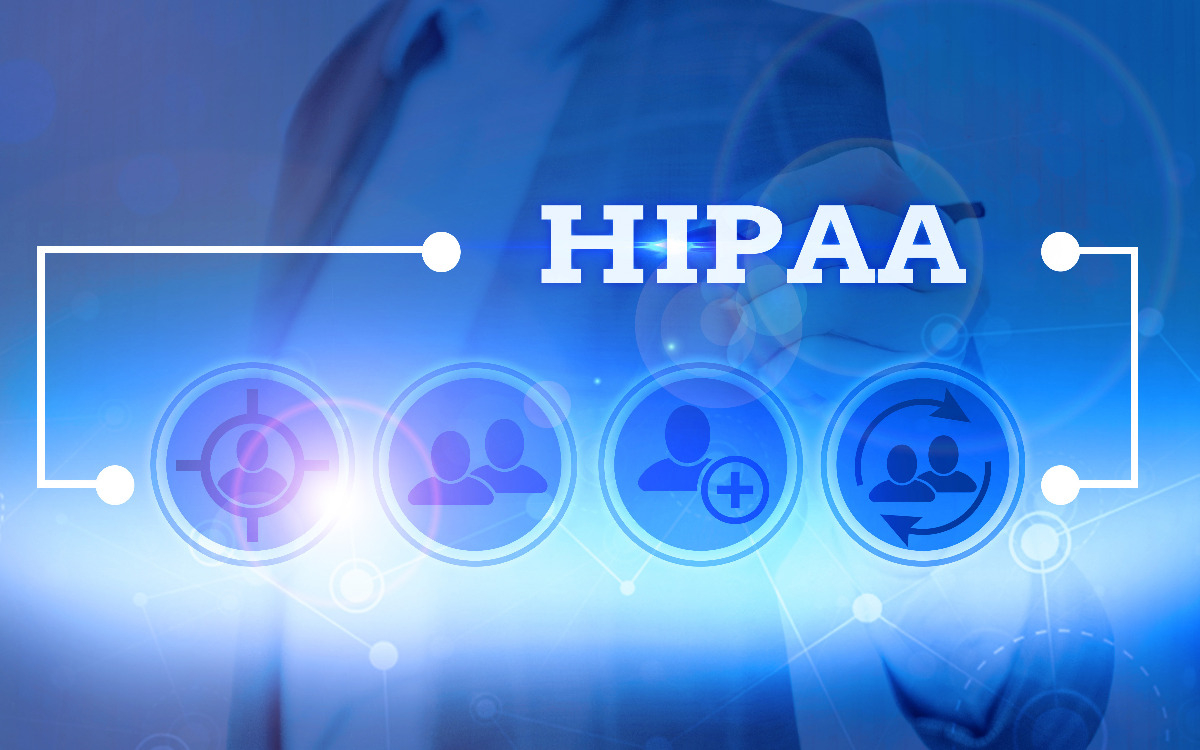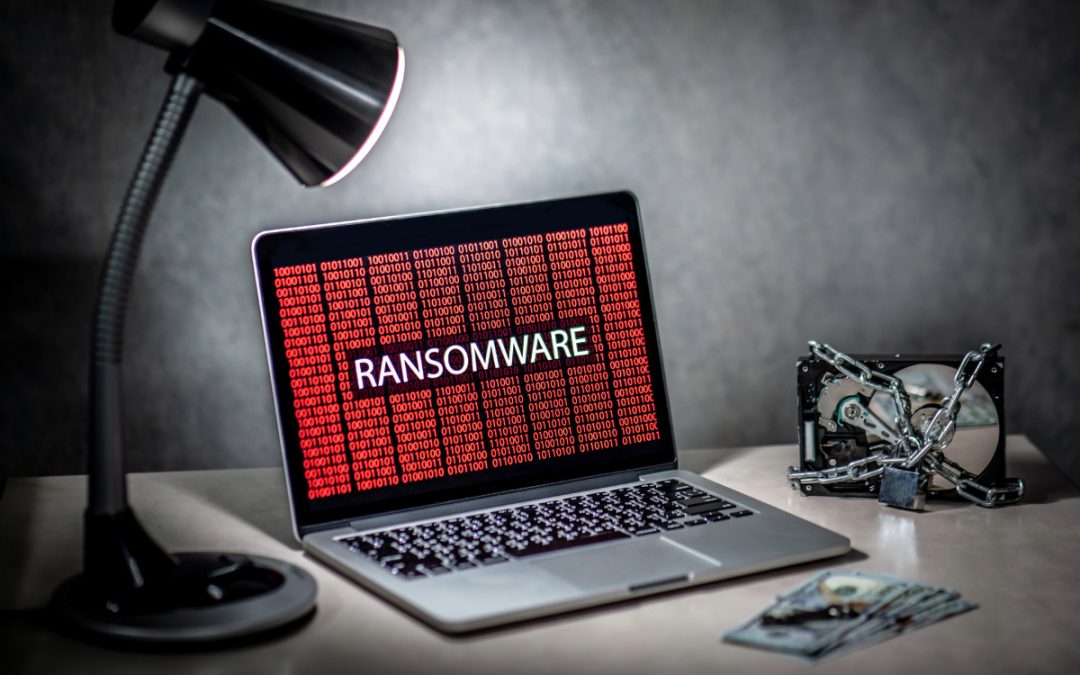In this guide, we delve into the complex world of HIPAA compliance. We’ll explore why HIPAA is not just a strict set of healthcare regulations but a key part of building trust, improving patient care, and developing secure health technologies. The goal of these regulations isn’t to punish mistakes but to promote a better healthcare system. Whether you’re a provider, patient, or simply interested in the topic, this article will detail everything you need to know.
Table of Contents
A Brief History of HIPAA
Understanding Key HIPAA Rules and Terms
The Role of IT in HIPAA Compliance
Training Employees for Compliance
HIPAA Audits and Assessments
HIPAA Compliance and Remote Healthcare
HIPAA Violations and Enforcement
Common Compliancy Questions for Popular Solutions
ITonDemand: A Trusted HIPAA Compliance Partner
An Introduction to HIPAA Compliance
HIPAA compliance is a topic that frequently comes up in the healthcare industry, as it’s an integral part of serving patients and running a legal business. However, not everyone understands what it is or why it’s important. We’ll discuss that first.
What Does HIPAA Stand For?
HIPAA stands for the Health Insurance Portability and Accountability Act. It’s a U.S. law that sets standards for protecting and handling confidential health information. Multiple rules are involved, covering everything from how health information is viewed and received to standardization for electronically stored health data. Healthcare providers, health plans, and clearinghouses must all comply with HIPAA regulations.
Why Is HIPAA Important?
HIPAA serves as a critical safeguard for patient health information. It establishes stringent standards for managing it, calling for necessary security measures spanning physical, network, and process controls. A core element of HIPAA is patients’ privacy, ensuring that their health information is adequately secured while allowing for the necessary flow of information to promote quality healthcare.
It was initially enacted to regulate health insurance practices, including guaranteeing sustained insurance coverage for employees transitioning between jobs. Since then, its role has expanded to promote trust within the healthcare system. Patients can confidently seek treatment, secure in the knowledge that their personal health information remains confidential. This trust is crucial, for without it, individuals might hesitate to seek necessary treatment or withhold crucial information from healthcare providers.
Moreover, the legal consequences of HIPAA non-compliance underscore its importance. Substantial fines and potential imprisonment serve as potent deterrents against violations. Alongside this, HIPAA and the HITECH Act have encouraged the adoption of more secure health technologies. These advancements elevate the efficiency and effectiveness of healthcare delivery. Thus, the importance lies not only in protecting privacy and building trust but also enhancing healthcare outcomes through improved patient care.
A Brief History of HIPAA
There are a lot of moving parts in the history of HIPAA, starting in the 90s and evolving over the past few decades. While this isn’t a complete history of HIPAA, we’ll touch on where it began and some of the key laws that came after.
The 1996 HIPAA Law
In 1996, the United States passed the Health Insurance Portability and Accountability Act. The early HIPAA law set the foundation for greater patient protection. The Privacy Rule provides guidelines for using and disclosing what is known as Protected Health Information (PHI). The Security Rule also delves into the requirements for securing electronic PHI, ensuring it’s protected yet accessible to patients when necessary.
Healthcare providers, insurance firms, and other bodies that handle patient data are expected to follow these rules. The U.S. Department of Health and Human Services (HHS) oversees the regulations. Non-compliance can result in severe financial penalties and potential legal repercussions depending on the severity of the mistake.
The 2009 HITECH Act
The Health Information Technology for Economic and Clinical Health Act (HITECH) was signed into U.S. law in 2009. With the growth of digital technology and electronic health records (EHRs), expanding upon the original HIPAA guidelines was necessary. The goal was to further improve protections for patient privacy and security, establish better information sharing, and increase the legal and financial penalties for those in breach of compliance.
The Breach Notification Rule provides specific guidelines on how covered entities must communicate and respond to any discovered breach. That transparency lets patients better understand what health information has been stolen and what steps people can take to protect themselves. While this leads to more work for businesses, it leads to better patient data management and security.
The 21st Century Cures Act
Passed in 2016, the 21st Century Cures Act is a law designed to help accelerate medical product development and bring innovations and advances to patients who need them faster and more efficiently. It includes provisions that have implications for exchanging health information and interoperability, emphasizing the need for data sharing without blocking information and patient access to their health data.
While not directly amending HIPAA, the Cures Act works in conjunction with HIPAA’s existing provisions to promote transparency and data access in healthcare. It’s part of a broader move towards patient empowerment, encouraging the development of applications that can help patients access, use, and control their health information. Any entities impeding this access may face penalties under the Information Blocking provisions of the Cures Act.
Understanding Key HIPAA Rules and Terms
When discussing HIPAA, some key rules and terms shape HIPAA’s privacy and security provisions. Familiarizing yourself with these concepts is crucial for maintaining compliance and protecting health information.
Protected Health Information (PHI)
Protected Health Information (PHI) is any information held by a covered entity that concerns health status, provision of health care, or payment for health care that can be linked to an individual. That includes medical records, billing information, health insurance details, and any other information a healthcare provider uses to identify a patient. Under HIPAA, stringent regulations are in place to protect the privacy and security of PHI, both in electronic and non-electronic forms.
Covered Entities and Business Associates
Covered Entities under HIPAA directly handle PHI while providing healthcare services. That includes healthcare providers like doctors, clinics, and hospitals, health insurance companies, and healthcare clearinghouses that process nonstandard health information.
On the other hand, Business Associates are third-party organizations or individuals who perform tasks or services for a Covered Entity that involves access to or handling PHI. Both Covered Entities and Business Associates are required by law to protect the privacy and security of PHI as stipulated under HIPAA.
The HIPAA Privacy Rule
The HIPAA Privacy Rule establishes national standards for protecting PHI held by Covered Entities and their Business Associates. It gives patients the right to their health information and sets rules and limits on who can look at and receive it. The Privacy Rule applies to all forms of PHI, whether electronic, written, or oral.
The HIPAA Security Rule
The HIPAA Security Rule specifically focuses on protecting electronic PHI (ePHI). It outlines three types of security safeguards required for compliance: administrative, physical, and technical. Administrative safeguards involve procedures and policies that clearly show how the entity will comply with HIPAA. Physical safeguards involve access to equipment, while technical safeguards involve access control to software and data.
The HIPAA Breach Notification Rule
The HIPAA Breach Notification Rule requires Covered Entities and their Business Associates to provide notification following a breach of unsecured PHI. Similar to other parts of HIPAA, the Breach Notification Rule is designed to protect the privacy and security of PHI. It stipulates that timely notifications must be provided to affected individuals, the Secretary of the Department of Health and Human Services (HHS), and sometimes the media.
The HIPAA Omnibus Rule
The HIPAA Omnibus Rule is a key amendment to HIPAA rules, strengthening privacy and security protections for PHI. It expands the scope to help regulate business associates and their subcontractors who handle medical records, stipulating they can face penalties for non-compliance. The rule also places stricter limitations on using and disclosing PHI for marketing and fundraising, prohibits the sale of health data without consent, and enhances patient rights, such as accessing electronic health records.
The HIPAA Enforcement Rule
The HIPAA Enforcement Rule sets the standards for investigations into compliance, penalties for violations, and breach procedures. It also allows the OCR to investigate complaints, conduct compliance reviews, and impose civil penalties for violations of HIPAA rules. Their involvement extends to violations of any of the above mentioned rules.
Enhanced by the HITECH Act and the Omnibus Rule, the Enforcement Rule now encompasses a tiered civil money penalty structure for violations, accounting for the nature, extent, and harm resulting from the offense. This rule extension also covers Business Associates and the covered entities, increasing their liability for non-compliance.
The HIPAA Minimum Necessary Standard
The HIPAA Minimum Necessary Standard requires that medical data be reasonably limited to the minimum necessary for its intended purpose, disclosure, or request. However, there are exceptions, including disclosures for treatment under the patient’s authorization or for the HSS for enforcement. Entities must use compliant processes to limit PHI uses and disclosures in line with this standard.
The Role of IT in HIPAA Compliance
Information Technology (IT) is vital in ensuring HIPAA compliance for healthcare organizations and related entities. It manages critical aspects, including implementing secure IT systems, maintaining data integrity, and devising robust disaster recovery plans.
Implementing HIPAA Compliant IT Systems
The IT team’s task starts from setting up secure network architectures and choosing software and hardware that provide optimal security to configuring system settings for maximum data protection. They are responsible for putting measures in place to ensure the confidentiality, integrity, and availability of electronic PHI (ePHI).
Their role also includes deploying strong access controls, encryption, and intrusion detection systems. Through constant system monitoring and regular HIPAA audits, they help identify and rectify potential security weaknesses, thereby keeping the systems compliant.
Ensuring Data Integrity and Security
Data integrity and security are core aspects of HIPAA compliance, and the IT department is at the helm of managing this. They ensure data is accurate, consistent, and reliable throughout its lifecycle. That involves implementing measures that prevent unauthorized access, data tampering, or loss.
IT professionals must employ security technologies and policies such as encryption, user authentication, and access controls to protect sensitive information from internal and external threats. Additionally, they must monitor systems to detect and respond to potential breaches swiftly and effectively.
Disaster Recovery and Backup Procedures
The IT team is also responsible for developing and maintaining robust disaster recovery and backup procedures as part of HIPAA compliance. These plans should ensure that ePHI can be recovered quickly and accurately in a data loss scenario, whether due to a natural disaster, cyberattack, or other system failure.
This involves creating regular, secure backups of all ePHI and testing the recovery process to ensure data can be restored effectively. It also means creating an emergency mode operation plan to enable continued protection of ePHI during and after a crisis. These preparations fulfill HIPAA requirements and are best practices for any organization seeking to protect its critical data assets.
Training Employees for Compliance
Alongside establishing secure IT systems, IT departments also have an essential role in employee HIPAA training. Regular training sessions should be held to ensure that employees understand their roles and responsibilities in safeguarding PHI. IT should collaborate with human resources and compliance officers to design training programs that meet the organization’s specific needs.
IT-Specific HIPAA Training
IT professionals require specialized training to understand how HIPAA’s security requirements apply to their work. That might include education on securing network access, implementing encryption, responding to potential cyber threats, and carrying out regular risk assessments. Regular updates to this training are crucial as technology and cyber threats evolve.
Training for Non-IT Staff
For non-IT staff, training should focus on daily activities that maintain compliance. This includes creating strong passwords, identifying phishing emails, using secure networks, and following correct procedures for accessing and sharing PHI. The IT team can provide expertise and guidance to help non-technical staff understand these aspects.
Securing Remote Work
With the increasing trend of remote work, training staff on secure practices for accessing PHI outside the office is also critical. This might include using VPNs, ensuring home networks are safe, and following best practices for mobile device usage.
Continuous Awareness and Training
HIPAA training isn’t a one-time event. It should foster an environment of continuous learning and awareness, providing updates as technologies and regulations change. That might include regular security reminders, updates on recent cyber threats, or refreshers on HIPAA requirements.
HIPAA Audits and Assessments
HIPAA audits and assessments are essential to guarantee an organization is following the regulatory guidelines. This section will delve deeper into the role of IT in HIPAA audits, the different types of assessments used, and how to deal with external auditors.
The Role of IT in HIPAA Audits
The IT team plays a core role in facilitating and supporting these audits. Their understanding of the technical systems allows them to provide critical insights into how data flows within the organization, how it is secured, and potential points of vulnerability. They are often responsible for documentation and evidence of ongoing compliance efforts, such as system access logs and security incidents.
They are also instrumental in implementing any changes or enhancements resulting from these audits to fortify the organization’s data security measures. Whether using in-house staff or a third-party MSP or IT consultant, HIPAA certification can help ensure the IT team knows what to look for and has the knowledge they need to assess infrastructure properly.
Legally Required HIPAA Audits
There are three primary audit types that are required by HIPAA. Most will want to do more, since additional checks can help fill haps. However, with these three it’s especially important not to cut corners with the process, and to make changes based on the results.
- Security Standards Audit:This audit checks compliance with the HIPAA Security Rule, which requires the implementation of administrative, physical, and technical safeguards to protect ePHI. It involves reviewing policies and procedures and physical and technical controls to ensure that ePHI is securely created, maintained, transmitted, and received.
- Security Risk Assessment:As an organization-wide process, this helps identify potential risks and vulnerabilities to the confidentiality, integrity, and availability of all electronic protected health information (ePHI). It involves analyzing the potential risks to ePHI and assessing the effectiveness of the current security measures. It is a requirement under the Security Rule of HIPAA.
- HITECH Subtitle D Privacy Audit:This involves assessing compliance with the HITECH Act’s Breach Notification Rule, which is under Subtitle D. This audit ensures that the organization has policies and procedures in place to notify affected individuals, the Secretary of Health and Human Services (HHS), and, in certain circumstances, the media of a breach involving unsecured PHI.
Other Types of Useful HIPAA Assessments
While there are only three legally required audits, there are a lot of additional types of HIPAA assessments that can be useful. Checking for compliance from different angles reduces the chance of making mistakes while improving overall protection for businesses and patients.
- Privacy Standards Audit: The privacy standards audit helps ensure all uses and disclosures of medical data follow the HIPAA Privacy Rule. It includes checking that PHI is properly defended and patient rights are upheld.
- Asset and Device Audit: This audit involves a comprehensive inventory of all hardware and electronic devices that are used to access, store, transmit, or receive ePHI. It aims to ensure that all assets and devices are secure and comply with the standards set out in the HIPAA Security Rule.
- Physical Site Audit: This audit checks an organization’s physical safeguards for ePHI. It includes reviewing facility access controls, workstation use, security, and the procedures for properly disposing of medical records. The goal is to identify potential vulnerabilities where unauthorized physical access to ePHI could occur.
- Employee Training Audit: This type of audit evaluates the training programs provided to employees regarding handling and protecting PHI. It assesses whether the training is adequate and if it’s updated regularly to reflect changes in regulations.
- Incident Response Audit: This audit scrutinizes the organization’s response to potential breaches or incidents involving PHI. It tests the effectiveness of incident response plans and checks if they align with HIPAA’s Breach Notification Rule.
- Vendor Risk Management Audit: This audit assesses whether the organization’s third-party vendors comply with HIPAA. It’s essential as the organization is responsible for non-compliance by its business associates.
- Social Media and Communications Audit: This audit evaluates whether employees follow HIPAA rules when using social media, email, or other digital communication platforms and whether there are no inadvertent disclosures of PHI.
Dealing with External Auditors
Any healthcare provider or company that handles patient data will eventually have to deal with external auditors. An organization needs to provide full cooperation and transparency during an external audit. Covered entities and business associates must retain documentation for six years from the date of its creation or the date when it last was in effect, whichever is later.
The IT team should be prepared to provide all necessary documentation, demonstrate procedures, and answer any questions the auditor might have. After an assessment, the organization should carefully review any findings or recommendations and make necessary changes to their practices to ensure continued HIPAA compliance.
HIPAA Compliance and Remote Healthcare
Remote healthcare has changed how patient-doctor interactions happen, allowing for easier access for discussing quick questions and concerns. That’s also created new challenges with HIPAA compliance, as providers must maintain a compliant remote environment to ensure health information’s confidentiality, integrity, and availability.
Securing Remote Access
HIPAA compliance doesn’t stop at the walls of a healthcare facility. It extends to any location where health information is accessed, including the homes of patients and employees. This means that, as a covered entity or business associate, companies must ensure secure remote access to PHI.
That can be facilitated by using encrypted connections such as Virtual Private Networks (VPNs), employing multi-factor authentication, and ensuring remote devices have the necessary security features such as firewalls and up-to-date anti-virus software. Regularly monitoring and auditing access logs is critical to promptly identifying and addressing unauthorized or unusual activity.
Using HIPAA Compliant Communication Tools
In a remote environment, communication is often carried out using digital tools such as email, video conferencing platforms, or instant messaging apps. When these tools are used to share or discuss PHI, they must meet HIPAA compliance standards. Compliant communication tools should incorporate end-to-end encryption, ensuring that medical records remain secure during transit and cannot be intercepted.
In addition, these tools should provide access controls and audit trails so it is clear who has accessed certain information and when. Training employees on the appropriate use of these tools and reminding them to avoid sharing PHI unnecessarily, even within these secured platforms, is essential. Companies should also use business associate agreements with software vendors to confirm their commitment to protecting the healthcare data they handle.
HIPAA Violations and Enforcement
What Is a HIPAA Violation?
A HIPAA violation is an event where there’s a failure to comply with the defined standards. That typically involves the unauthorized use, access, or disclosure of patient health information. Violations can occur in various ways, such as not using proper safeguards to protect PHI, not providing patients with access to their medical records, or not notifying the necessary parties following a data breach. Penalties for these violations can range from fines to criminal charges, depending on the nature and severity.
Can HIPAA Violations Be a Criminal Offense?
HIPAA violations can result in civil penalties, typically applied to employers. However, healthcare professionals can also face criminal charges if they knowingly misuse health information. That can lead to substantial fines or imprisonment. Actions like theft of patient data for personal gain or deliberate harmful disclosures are criminal offenses. Ignorance of HIPAA requirements isn’t considered a valid defense.
Who Enforces HIPAA?
HIPPA is enforced by the Office for Civil Rights (OCR), a part of the HHS. The OCR is responsible for investigating complaints, conducting compliance reviews, and giving penalties for HIPAA violations. The State Attorneys General also has the authority to enforce HIPAA rules and can bring civil actions against violators. The Department of Justice (DOJ) may handle criminal penalties for cases involving knowing disclosure or improper use of health information.
Examples of HIPAA Violations
Many types of actions or omissions could constitute a violation of HIPAA. Here are some examples of violations:
Snooping on Patient Files: Employees accessing patient files out of curiosity or for personal reasons, not as part of their job responsibilities.
Too Much Information Shared: This is a common accidental violation where additional information is shared beyond the minimal necessary.
Failure to Encrypt ePHI: Unencrypted electronic protected health information (ePHI) can easily be accessed by unauthorized parties if a device is lost, stolen, or hacked.
Impermissible Disclosure: Revealing PHI to unauthorized individuals, including sharing information with a patient’s family without explicit permission.
Unauthorized Phi Disclosure via Social Media: Posting about patients, even without using their names, can be a violation if someone can reasonably determine the patient’s identity.
Employee Sharing Login Credentials: Sharing usernames or passwords can lead to unauthorized access to PHI.
Lack of Audits: Failing to perform an annual security standards audit, security risk assessment, and privacy audit to identify potential issues.
Not Providing Patients with Access to Their PHI: HIPAA entitles patients to access their medical records, and failure to provide access upon request is a violation.
No Business Associate Agreement (BAA) in Place: Sharing PHI with a vendor or contractor without having a BAA outlining how they will protect the data is a violation.
Failure to Notify of a Data Breach: If a breach of unsecured PHI occurs, failing to notify affected individuals and the HHS within 60 days is considered a deliberate violation.
Financial Penalties for HIPAA Violations
All HIPAA violations are potentially subject to penalties, but the OCR prefers resolving them through voluntary compliance or offering technical guidance to fix the issues. For serious violations or issues left unaddressed long-term, financial penalties are used to enforce a lack of compliance.
HIPAA violations typically fall under one of four tiers:
Tier 1: Minimum fine of $100 per violation up to $50,000. An offense that the covered entity, despite reasonable care, was unaware of and could not have realistically prevented per HIPAA Rules.
Tier 2: Minimum fine of $1,000 per violation up to $50,000. An offense that the covered entity might have anticipated but could not have sidestepped, even with reasonable care, without crossing into the territory of willful neglect of HIPAA Rules.
Tier 3: Minimum fine of $10,000 per violation up to $50,000. An offense that comes directly from the ‘willful neglect’ of HIPAA Rules in situations where efforts have been made to rectify the violation.
Tier 4: Minimum fine of $50,000 per violation. An offense of HIPAA Rules that denotes willful neglect, where no remedial steps have been taken to address it within a 30-day timeframe.
Recent Examples of Financial HIPAA Settlements
To give insight into how much a HIPAA settlement may realistically cost, we’ll provide publicly available examples of businesses fined for different types of violations.
Name: Danbury Psychiatric Consultants
People impacted: 1
Amount fined: $3,500
Violation: HIPAA Right of Access failure.
Name: New Vision Dental
People impacted: <20
Amount fined: $23,500
Violation: Impermissible disclosure of ePHI on Yelp and notice of privacy practices failure.
Name: Northcutt Dental-Fairhope
People impacted: 5,385
Amount fined: $62,500
Violation: Impermissible disclosure for marketing, a notice of privacy practices, HIPAA Privacy Officer
Name: Great Expressions Dental Center of Georgia, P.C.
People impacted: 1
Amount fined: $80,000
Violation: HIPAA Right of Access failure (delay + fee).
Name: New England Dermatology and Laser Center
People impacted: 58,106
Amount fined: $300,640
Violation: Improper disposal of PHI, failure to maintain appropriate safeguards.
Name: Oklahoma State University – Center for Health Sciences
People impacted: 279,865
Amount fined: $875,000
Violation: Risk analysis, security incident response and reporting, evaluation, audit controls, breach notifications & an unauthorized disclosure.
Name: University of Rochester Medical Center
People impacted: 43
Amount fined: $3,000,000
Violation: Loss of flash drive/laptop; no encryption; risk analysis failure; risk management failure; lack of device media controls.
Name: Excellus Health Plan
People impacted: 9,358,891
Amount fined: $5,100,000
Violation: Multiple HIPAA Violations: Risk analysis, risk management, information system activity reviews, technical policies to prevent unauthorized ePHI access, breach of 9,358,891 records.
Criminal Penalties for HIPAA Violations
Criminal penalties for HIPAA violations are sorted into three tiers, with a judge determining the term and accompanying fine based on each case’s specifics. Several factors, such as individual profit from the theft, access, or disclosure of PHI, influence the penalty issued. Full restitution may be necessary in addition to a fine.
Most criminal HIPAA violations fall under one of three tiers:
Tier 1: Up to 1 year in jail. Unawareness or justifiable reason for the violation
Tier 2: Maximum of 5 years in jail. Securing health records through deceitful means.
Tier 3: Maximum of 10 years in jail. Procuring PHI for personal advantage or harmful motives.
Healthcare License Revocation
Doctors, nurses, and other healthcare providers have their licensing boards with unique sets of rules and disciplinary actions. Severe HIPAA violations, especially those involving criminal activity, may be considered violating ethics or standards of conduct. In those situations, not only will there be a financial or criminal penalty, but the individual’s license may be revoked. Depending on the terms, it may prevent them from re-entering the healthcare industry.
How Do You Report a HIPAA Violation?
Anyone, including healthcare professionals and patients, can report a HIPAA violation through several avenues: the privacy officer at the concerned organization, the State Attorney General, or the HSS through their online form. HIPAA training and reading guide like this one is vital to understanding what constitutes a violation and how to report it.
Common Compliancy Questions for Popular Solutions
There are a lot of popular business solutions, ranging from Microsoft 365 to Google Workplace, which offers a lot of tools within one ecosystem. While not everything is HIPAA compliant on its own, many vendors will provide a business associate agreement (BAA) to share some of the burdens of data management.
Is Google Workplace HIPAA Compliant?
Google Workspace, encompassing solutions like Gmail, Google Drive, and Google Meet, can be configured to support HIPAA compliance. Google provides a BAA for Google Workspace customers, covering both Google Drive and Gmail. The BAA is a fundamental prerequisite for any service to be deemed HIPAA compliant, as it details how a business associate will safeguard, use, and disclose patient data.
The accountability of ensuring compliance also depends on how the covered entity or business associate employs these services. Routine audits and staff training on managing PHI within Google Workspace are also vital to maintaining compliance.
Is Microsoft 365 HIPAA Compliant?
Microsoft 365, which includes its full suite of services, can be used in a compliant manner as it offers the required technical and administrative safeguards. That involves unique user login credentials, single sign-on for related systems, multi-factor authentication, audit logs for tracking PHI access, and strong encryption for data in transit and at rest. Moreover, Microsoft is willing to sign a BAA, a vital requirement for any HIPAA-compliant platform.
While Microsoft 365 provides the necessary tools for HIPAA-compliant usage, the end user must ensure the platform is correctly configured. No software, on its own, can guarantee full compliance. How the tool is used also plays a significant role in upholding compliance.
Is Dropbox HIPAA Compliant?
Dropbox can indeed be HIPAA compliant under specific conditions. For users with Dropbox Business or Dropbox Enterprise accounts, Dropbox offers a BAA to its partners. However, simply signing a BAA doesn’t guarantee HIPAA compliance in and of itself. There’s a shared responsibility, which Dropbox discusses with its partners. That means they must correctly use the service, set appropriate privacy settings, and securely handle medical records.
Is Zoom HIPAA Compliant?
Yes, Zoom is HIPAA compliant. The company’s platform and Zoom Phone have been designed to comply with the requirements of a business associate. Zoom has implemented several safeguards to ensure the privacy and security of PHI. That includes unique user identification, encrypted data transfer, automatic session logoff, user verification, and more.
Zoom’s HIPAA attestation was conducted by a third party that confirmed the platform’s alignment with the requirements of the HIPAA Security Rule, Breach Notification Rule, and applicable parts of the Privacy Rule. While businesses should always use good habits when handling data, Zoom makes the process easy.
ITonDemand: A Trusted HIPAA Compliance Partner
Embarking on the journey to HIPAA compliance can seem complex and intimidating, which is why ITonDemand is here to serve as your reliable partner in this process. Our comprehensive understanding of the regulations and their implications for IT systems allows us to implement robust security measures, manage data handling protocols, and facilitate staff training to ensure your organization fully complies with HIPAA guidelines.
Additionally, we offer ongoing support and conduct regular audits to uncover potential vulnerabilities, thus minimizing the risk of data breaches and non-compliance. We aim to ease your path to HIPAA compliance, allowing you to focus on delivering quality healthcare. Trust ITonDemand to protect the privacy and security of your patient data. We are both an IT service provider and a dedicated partner in HIPAA compliance.
If you need help with HIPAA compliance, schedule a consultation through our contact form or call us at +1 (800) 297-8293





